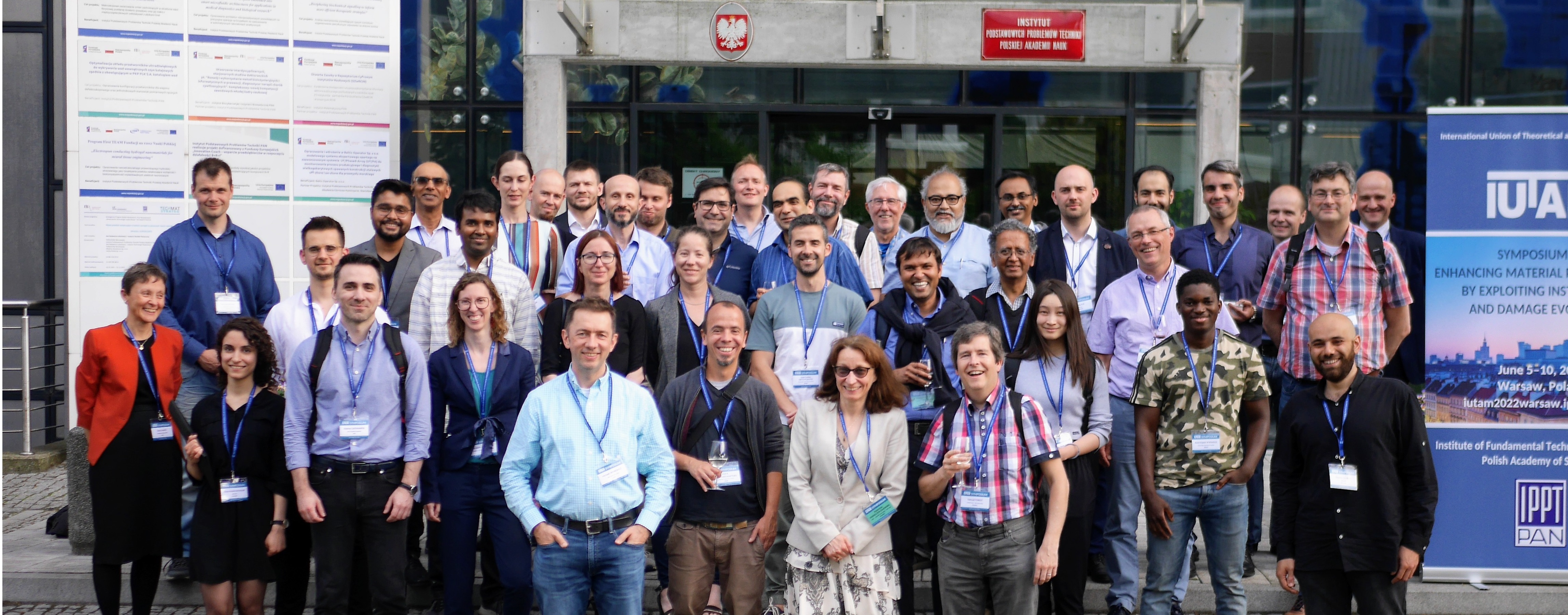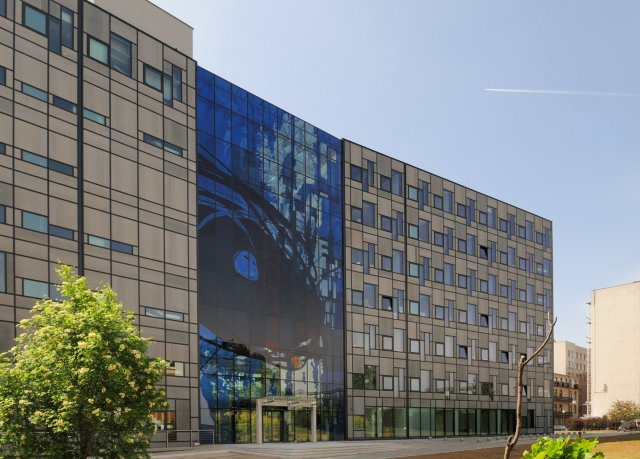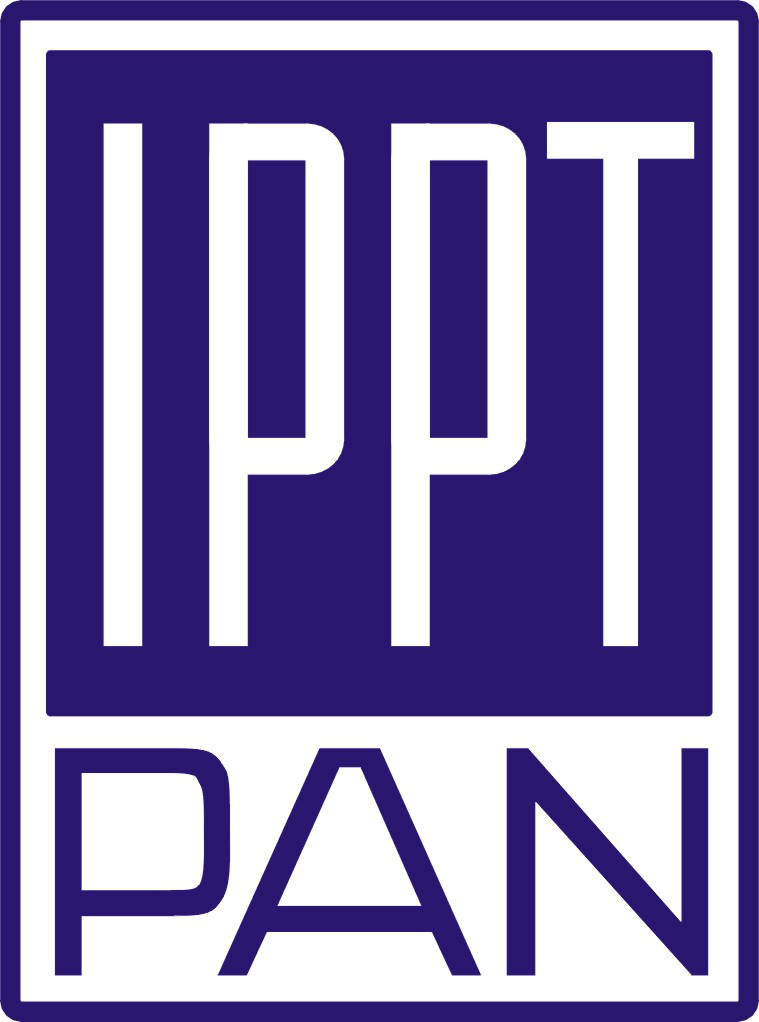Acknowledgements
We sincerely thank all the participants of the symposium for their support, inspiring lectures and lively discussions. We hope everyone enjoyed their stay at IPPT and Warsaw, and all the social events as much as we enjoyed their company!
Symposium Chairs Katarzyna Kowalczyk-Gajewska and Ankit Srivastava

Scope

Designing against structural, component and material failure involving finite deformation modes such as buckling, strain localization, shear banding, kink banding, wrinkling, crazing, void growth, and fracture is a long-standing engineering challenge. In many cases, these deformation modes emerge abruptly from uniform or nearly uniform deformation fields. Much progress has been made in solid mechanics defining conditions needed to preclude these types of failures that has provided engineers with design guidelines for safe performance. On the other hand, there are circumstances where such deformation modes can be exploited to achieve a desired engineering objective. A classic example is a thermostat based on a curved metal strip that buckles with a change in temperature to make or break an electric circuit. Recently, there has been broad interest in exploiting instabilities and damage evolution to enhance performance in a wide variety of contexts. Examples include techniques to control buckling and delamination to design sophisticated three-dimensional meso-structures with novel functionalities, and proposals to enhance the fracture toughness of materials by controlling the distribution of weak interfaces in brittle solids and by controlling the distribution of void nucleating defects in ductile solids. Furthermore, hierarchical metamaterials with tunable properties have been created by mimicking the microstructure-property relations in materials at the structural scale to engineer complex deformation modes.
Many more ways to exploit instabilities and damage evolution to engineer and enhance material properties, functionalities and performance remain to be understood and developed. The symposium "Enhancing Material Performance by Exploiting Instabilities and Damage Evolution" aims at gathering mechanicians who are exploring the advantages of introducing and controlling complex deformation modes into material systems at different scales of observation to enhance their properties, functionalities and performance. The participants will present their recent experimental, theoretical and computational works aimed at achieving this goal. The symposium will also feature presentations and discussions on the impact of advancement in manufacturing, characterization and computational techniques on our capabilities to improve the understanding, control and exploitation of instabilities and damage evolution to enhance material performance.





